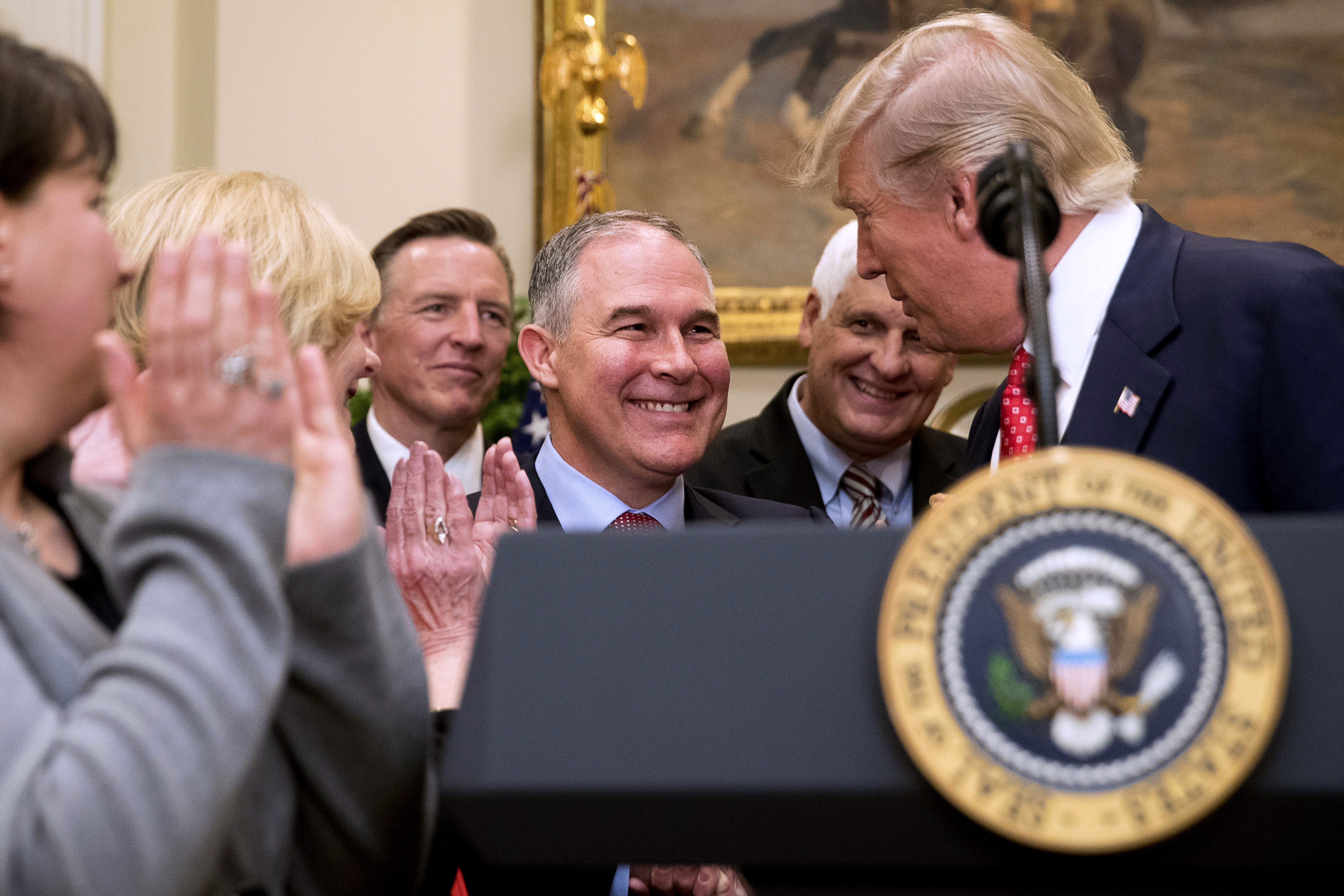The astonishing corruption of American democracy
It has a sharp right-wing political complexion too


A free daily email with the biggest news stories of the day – and the best features from TheWeek.com
You are now subscribed
Your newsletter sign-up was successful
American politicians love to boast about how ours is the greatest country on Earth. But when it comes to clean government, the sad reality is that not only is the United States behind Denmark or New Zealand, it's so far behind that our real peer nations are more like Brazil or Romania. Name a government agency and it's even odds someone high up recently was caught doing something shifty or resigned over improper behavior (Wednesday's contestant was the head of the Bureau of Indian Affairs).
However, it's important to realize that American corruption is just as much about ideology as it is about money and dishonesty. American politics is extremely crooked, but it is also severely tilted to the right in part because the national government is being suffocated under a tsunami of cash.
In the thinking of the Progressive Era or mid-20th century managerial liberalism (as advocated by people like Nelson Rockefeller), the point of tackling corruption was not just to raise ethical standards and create more efficient government, but also free politics from party machines and grubby partisan ideologues. By this view, conflict should be adjudicated not by political combat over basic moral values, but by increasing public knowledge, nonpartisan technocrats, professional investigations, and other supposedly-neutral institutions.
The Week
Escape your echo chamber. Get the facts behind the news, plus analysis from multiple perspectives.

Sign up for The Week's Free Newsletters
From our morning news briefing to a weekly Good News Newsletter, get the best of The Week delivered directly to your inbox.
From our morning news briefing to a weekly Good News Newsletter, get the best of The Week delivered directly to your inbox.
However, this definition of corruption lumps together two very different varieties. The first is corruption for personal benefit — embezzling public funds, for example. The second is corruption on behalf of a voting bloc — for instance, Tammany Hall-style patronage machines where votes are purchased in return for jobs, turkey baskets, and other services. (Often these are combined, of course, but they are logically distinct.)
What America has today is almost exclusively the personal type of corruption, which is considerably worse than the other sort. (A patronage machine may be bent and inefficient, but at least a goodly share of the population gets a piece of the action, and often functional public works and services to boot.) For example, Rohit Chopra and Julie Margetta Morgan recently released a new report for the Roosevelt Institute looking not at money in politics, but money in government. They argue that existing anti-corruption laws are barely being enforced, and are outdated anyway. For example, astoundingly corrupt EPA Administrator Scott Pruitt hasn't been impeached or indicted after months of scandal, and it's not even illegal for members of Congress to trade on insider information (which they do constantly).
They also say the revolving door and cultural capture (i.e. the tendency of government employees to sympathize with supposed private-sector adversaries) has made regulators identify with the industries they oversee. Former Attorney General Eric Holder, for instance, had an office reserved for him at the high-powered corporate law firm Covington & Burling for his whole tenure, to which he returned after repeatedly refusing to prosecute big banks or their employees for staggering crimes. (The really insidious thing is he would probably honestly deny his corporate ties influenced his decisions.) Finally, all this mess is largely out of public view and thus harder to understand or root out.
Almost all of this is about individual corruption, but it also has a sharp right-wing political complexion. It involves de facto bribery of government employees of both parties (in the form of future jobs, consulting gigs, speaking engagements, etc) by the wealthiest institutions in the land. Virtually all of those are seeking conservative political outcomes: deregulation, legal loopholes, tax subsidies, and so on. Only a few left-leaning institutions (like unions) can even promise that kind of payoff, and none are remotely in the same league as big business money-wise. That's partly how overwhelmingly popular programs like Social Security can be viewed with intense suspicion by half or more of the governing class.
A free daily email with the biggest news stories of the day – and the best features from TheWeek.com
This implies that measures to stamp out corruption would have a marked leftward political valance. Chopra and Morgan suggest a number of procedurally neutral reforms, like creating a new agency similar to the Consumer Financial Protection Bureau to police self-dealing on the part of bureaucrats and politicians. Nothing about that is explicitly left-wing or even liberal, but if nothing else it would erode some of the extant severe right-wing bias, and thus push American politics to the left.
Old-fashioned progressives or "post-partisan" lobbyists like the goobers at Third Way would probably balk at this effectively partisan outcome, especially if it meant higher taxes and spending. In reality, it's fine if politicians like Bernie Sanders then pivot to establish huge new welfare schemes under the new, cleaner political system. Sometimes honest government means the voting citizenry should get the deluxe benefits they want.
Ryan Cooper is a national correspondent at TheWeek.com. His work has appeared in the Washington Monthly, The New Republic, and the Washington Post.
